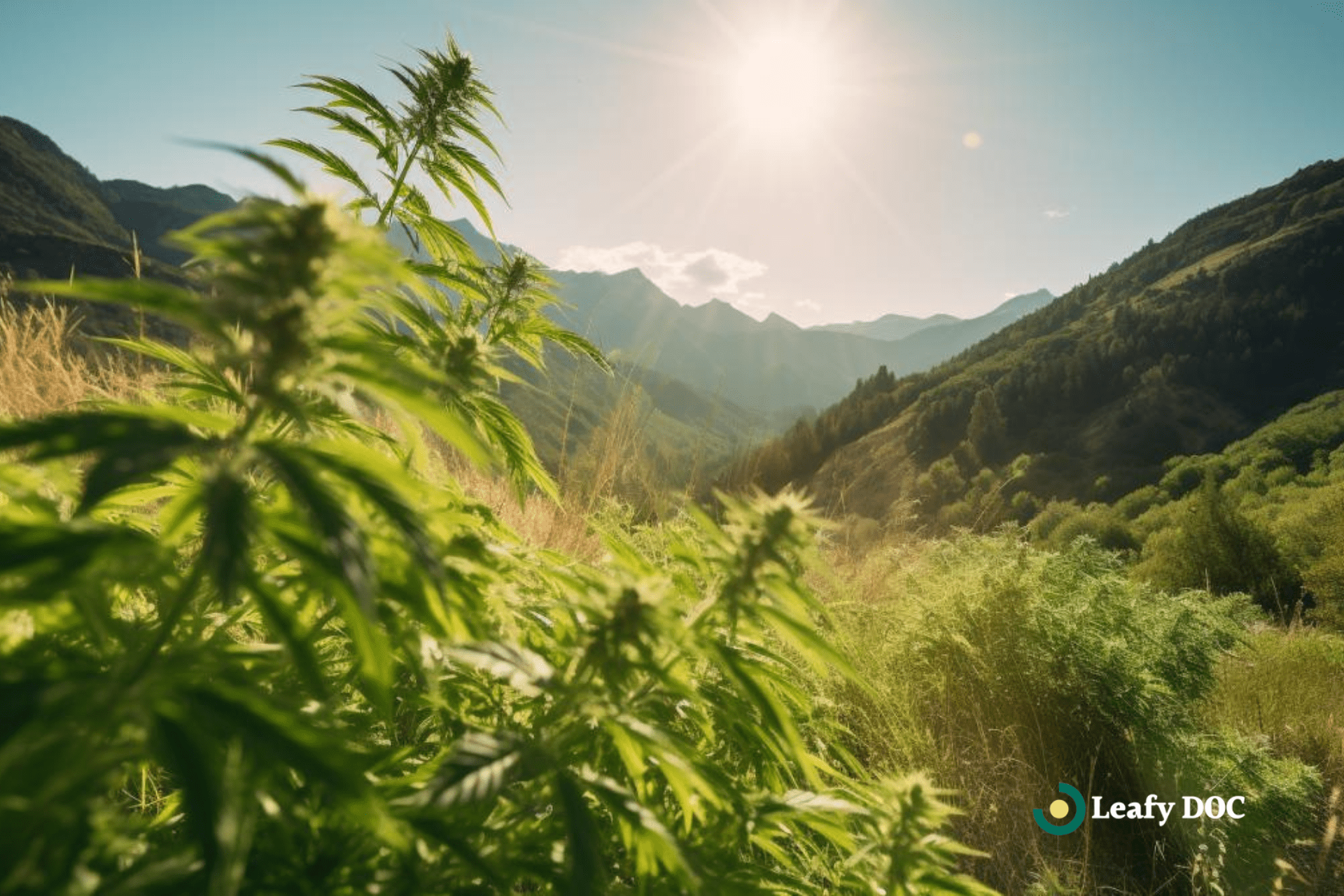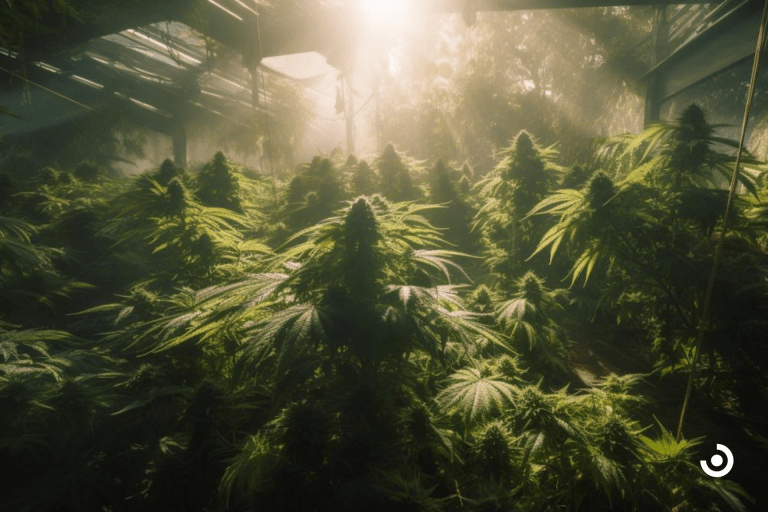The Debate On Recreational Marijuana Legalization
by Haley Mills · May 30, 2024
Unveiling the divisive debate over recreational marijuana legalization – weigh the pros and cons and make an informed decision. Click now to explore this hot topic!

Are you ready to dive into the heated debate surrounding recreational marijuana legalization? Strap in because we’re about to explore this controversial topic’s history, arguments, and economic impact.
Whether you’re a curious observer or a passionate advocate, this article will illuminate the ongoing battle for freedom when enjoying the herb.
Picture this: a world where you can decide what you put into your body without fear of legal repercussions. That’s the essence of the debate on recreational marijuana legalization.
Advocates argue that individuals should have the right to make their own choices, especially when it comes to something as personal as using marijuana for recreational purposes. By legalizing it, they believe we can empower individuals to exercise their freedom and break free from the constraints of prohibition.
So, get ready to explore the various perspectives, weigh the arguments, and embark on a journey through the complex landscape of recreational marijuana laws. It’s time to uncover the truth behind the debate and discover what the future holds for this controversial plant.
Key Takeaways
- Recreational marijuana legalization has the potential to create jobs in various sectors related to the cannabis industry.
- Legalizing recreational marijuana can generate tax revenue for states, which can be used for various public services and initiatives.
- The tourism industry can benefit from recreational marijuana legalization as it can attract visitors who are interested in consuming cannabis legally.
- The legalization of recreational marijuana can contribute to driving economic growth in states that embrace it, leading to increased business opportunities and investment.
The History of Marijuana Prohibition
Did you know that the history of marijuana prohibition is full of surprising coincidences that will make you question the reasons behind its criminalization?
It all started in the early 20th century when various factors created a perfect storm of fear and misinformation. During this time, there was a growing movement in the United States towards temperance and alcohol prohibition. People were becoming more concerned about the moral decay of society and were looking for something or someone to blame. Enter marijuana.
Around the same time, there was a wave of immigration from Mexico to the United States. This led to an increase in racial tensions and xenophobia. The Mexican immigrants brought with them their culture, which included the use of marijuana for medicinal and recreational purposes. This unfamiliarity with the plant and its effects, combined with the fear of the “other,” created a fertile ground for the demonization of marijuana.
The government and media started spreading stories of “crazy Mexicans” committing violent crimes under the influence of drugs, further fueling the public’s fear.
As a result, states began passing laws to criminalize marijuana, starting with California in 1913. These laws were justified using racist and xenophobic rhetoric, with officials claiming that marijuana was a dangerous drug that would corrupt and destroy the white population. This propaganda campaign was so effective that by the 1930s, marijuana was effectively criminalized nationwide.
The history of marijuana prohibition is a cautionary tale of how fear, ignorance, and prejudice can lead to the suppression of individual freedoms. It is a reminder that we should question the motives behind criminalizing certain substances and consider these laws’ impact on personal liberty.
The Arguments for Legalization
Imagine yourself in a world where you can freely enjoy the benefits of recreational marijuana. No longer would you have to worry about being criminalized for indulging in a harmless substance.
The arguments for legalization are numerous and compelling, and they speak to the subconscious desire for freedom that lies within us all.
- Health Benefits: Marijuana has been proven to have numerous health benefits. It can alleviate chronic pain, reduce symptoms of anxiety and depression, and even help with certain medical conditions such as epilepsy. By legalizing marijuana, individuals would have access to a natural remedy that can improve their overall well-being.
- Economic Boost: Legalizing marijuana would create a booming industry and stimulate economic growth. It would generate tax revenue, create jobs, and boost tourism. In states where marijuana has been legalized, such as Colorado, there’s been a significant increase in revenue from marijuana sales. Imagine the possibilities of a legalized marijuana market on a national scale.
- Criminal Justice Reform: The prohibition of marijuana has led to countless individuals being incarcerated for non-violent drug offenses. By legalizing marijuana, we can redirect law enforcement resources towards more serious crimes, reduce prison overcrowding, and give individuals a second chance. It’s a step towards a more just and fair criminal justice system.
- Personal Freedom: Ultimately, the argument for legalization comes down to personal freedom. Adults should have the right to make their own choices as long as they don’t harm others. The prohibition of marijuana infringes upon this fundamental right and limits our ability to live our lives as we see fit. Legalizing marijuana would be a step towards reclaiming our freedom and autonomy.
In a world where recreational marijuana is legalized, individuals would have the ability to enjoy the benefits of this plant without fear of legal repercussions. It wouldn’t only improve our health and well-being, stimulate economic growth, and promote criminal justice reform. Most importantly, it would be a victory for personal freedom and the ability to choose.
The Arguments Against Legalization
Although many individuals have concerns, there are valid arguments against the legalization of recreational marijuana. Some argue that marijuana can have adverse effects on physical health, such as respiratory problems and an increased risk of heart disease. They believe that legalizing marijuana would lead to an increase in its use, which could result in more people experiencing these health issues. Additionally, opponents of legalization express concerns about the potential for increased drug addiction rates. They worry that making marijuana more accessible and socially acceptable could lead to a rise in addiction rates, especially among vulnerable populations such as teenagers.
To further understand the arguments against marijuana legalization, let’s take a look at the table below:
| Argument against Legalization | Counterargument |
|---|---|
| Marijuana can have negative effects on physical health, such as respiratory problems and an increased risk of heart disease. | Proponents argue that the harms of marijuana are minimal compared to other legal substances, such as alcohol and tobacco. They believe that regulation and education can mitigate these risks. |
| Legalizing marijuana could lead to an increase in addiction rates. | Supporters of legalization argue that regulating the market can help prevent addiction. They point to the success of legalization in reducing opioid overdose deaths in states where marijuana is legal. |
| The black market for marijuana could still thrive even with legalization. | Advocates for legalization believe that a regulated market would undermine the black market and eliminate associated criminal activity. They argue that taxation and regulation would provide revenue for public services. |
| Legalization could lead to an increase in impaired driving incidents. | Proponents of marijuana argue that regulation and education can help address this concern. They advocate for implementing policies similar to those in place for alcohol, such as strict DUI laws and public awareness campaigns. |
Although there are valid arguments against the legalization of recreational marijuana, it is crucial to consider both sides of the debate. Ultimately, the decision should be based on thoroughly examining the evidence and legalization’s potential benefits and consequences.
The Economic Impact of Legalization
Legalizing recreational marijuana would bring in a lucrative and booming industry, like a flourishing garden amid an economic desert. The economic impact of legalization can’t be understated.
Here’s why:
- Job Creation: Legalizing marijuana would create thousands of new jobs across various sectors. From cultivation and production to retail and distribution, the industry would require a diverse range of skilled workers. This means more opportunities for individuals to find employment and contribute to the economy.
- Tax Revenue: Legalizing recreational marijuana would bring in significant tax revenue for the government. Just like any other legal product, marijuana would be subject to sales tax, excise tax, and even licensing fees. This revenue could fund public services, education, healthcare, and infrastructure, benefiting society.
- Tourism Boost: Many people are curious about marijuana and would be interested in visiting places where it’s legal. This could lead to a surge in tourism, with visitors flocking to experience the marijuana culture and boost local economies. From cannabis tours to marijuana-themed events, the tourism industry would see a positive impact from legalization.
- Economic Growth: The marijuana industry has the potential to spur economic growth in various ways. Legalization would stimulate investment, attract entrepreneurs, and encourage innovation. It would also lead to the development of ancillary businesses, such as marketing agencies, security firms, and technology providers, further contributing to economic expansion.
The Future of Recreational Marijuana Laws
The future of recreational marijuana laws looks promising as more states embrace its potential benefits. With each passing year, it becomes increasingly clear that the prohibition of marijuana was a mistake.
As more states legalize recreational marijuana, the stigma surrounding its use is slowly fading away. People are beginning to realize that marijuana can be used responsibly and can even provide numerous health and social benefits. The future is bright for those who believe in the freedom to choose what they put into their bodies.
It’s not just about the freedom to use marijuana recreationally, but also about the economic opportunities it brings. The marijuana industry has the potential to create thousands of jobs and generate billions of dollars in tax revenue. This means more money for schools, infrastructure, and other public services. It’s a win-win situation for everyone involved.
As more states embrace recreational marijuana laws, it’s only a matter of time before the federal government follows suit. The tide is turning, and it’s clear that the majority of Americans support the legalization of marijuana. So why wait? Embrace the future and join the movement towards freedom and prosperity.
The time for recreational marijuana laws is now.
Frequently Asked Questions
What are the potential health risks associated with recreational marijuana use?
You may wonder about the health risks of recreational marijuana use. While you should consider the potential impact on mental health and addiction, it’s equally crucial to weigh the benefits and personal freedom it offers.
How does marijuana legalization impact crime rates?
Marijuana legalization has been found to have a positive impact on crime rates. Studies show that in states where it’s legal, there has been a decrease in violent crimes and a shift in law enforcement focus toward more serious offenses.
Are there any age restrictions for purchasing and using recreational marijuana?
You might be surprised to learn that there are age restrictions for purchasing and using recreational marijuana. These restrictions vary by state, but generally, you must be 21 years old or older to partake in the freedom of cannabis.
What measures are in place to prevent impaired driving under the influence of marijuana?
To prevent impaired driving under the influence of marijuana, strict laws and penalties are in place. Police officers use roadside tests to detect impairment, and there are public education campaigns to raise awareness about the dangers of driving high. Stay free, stay safe.
How does the legalization of recreational marijuana affect the black market for cannabis?
The legalization of recreational marijuana is like a ray of sunlight breaking through the dark clouds of the black market. It symbolizes the freedom to choose and undermines the illicit trade, offering a safer and regulated alternative.
Last Updated: August 8, 2024
Get Approved for Your Medical Marijuana Card in Minutes!

Get Your Medical Card
Connect with a licensed physician online in minutes

Like This Article?
Share with your friends
Table of Contents
Keep Reading
-
How to Cook Weed: Step-by-Step Guide to Infusing Cannabutter
Learn how to cook weed with our step-by-step guide to infusing cannabutter effectively.
-
The Positive Impact Of Medical Marijuana On Patients
Unlock the incredible benefits of medical marijuana! See how it’s revolutionizing patient care and improving lives. Don’t miss out on the positive impact – click now to learn more!
-
Exploring The Functions Of The Endocannabinoid System
Unleash the Power of Your Body with Endocannabinoid System Functions! Uncover the Secrets and Discover Incredible Potential. Click Now to Explore and Tap into Your Hidden Powers Today!



